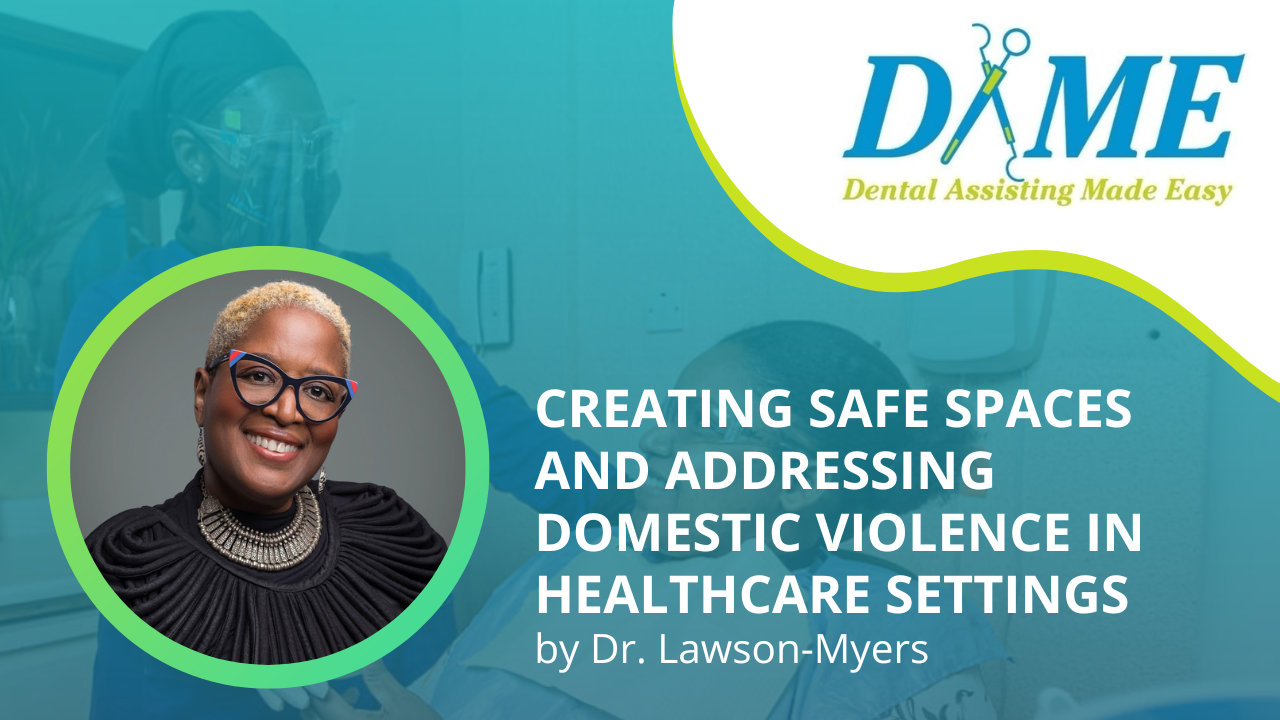Creating Safe Spaces and Addressing Domestic Violence in Healthcare Settings

Domestic violence is a pervasive and complex issue affecting individuals from all backgrounds, demographics, and social statuses. It involves a pattern of abusive behaviors used by one partner to gain power and control over another in an intimate relationship. These behaviors may be physical, sexual, emotional, psychological, economic, or even spiritual. As healthcare professionals, particularly dentists, there is a unique opportunity to create a supportive environment for patients who may be experiencing abuse.
Understanding Domestic Violence
The Department of Justice in the United States defines domestic violence as a "pattern of abusive behaviors in any relationship used by one partner to gain power and control over another." This can manifest in various ways, including threats, intimidation, manipulation, humiliation, and isolation. It is essential to recognize that domestic violence does not always present as physical injuries; often, behavioral changes, such as anxiety, withdrawal, or constant communication monitoring, can be indicators.
Psychological Effects of Domestic Violence
The psychological effects of domestic violence are profound and varied. Victims may experience low self-esteem, depression, anxiety, PTSD, and even suicidal thoughts. Some turn to substance abuse as a coping mechanism. These effects often stem from internalizing abusive behavior and can be exacerbated by generational or cultural influences.
How Dental Practices Can Help
Healthcare settings, including dental offices, can play a critical role in addressing domestic violence by creating safe spaces for patients. Here are actionable steps dental professionals can take:
- Provide Informational Materials:
- Include brochures on domestic violence alongside other promotional materials in waiting areas and restrooms.
- Ensure these materials include hotline numbers and resources for victims.
- Create a Safe and Confidential Environment:
- Communicate to patients that your practice is a confidential space where they can discuss health concerns, including issues related to domestic violence.
- Build trusting relationships with patients by fostering an atmosphere of empathy and openness.
- Be Observant:
- Pay attention to physical signs such as scarring, bruises, or injuries that might indicate abuse.
- Note unusual clothing choices, such as long sleeves on hot days, which might be used to cover injuries.
- Observe behavioral indicators, such as nervousness or a reluctance to engage.
- Ask Thoughtful Questions:
- Gently inquire about injuries or changes in behavior: “I noticed some swelling; can you tell me how that happened?”
- Be respectful and non-judgmental if the patient is reluctant to share.
- Provide Support Without Judgment:
- Let patients know that you are available to support them when they are ready.
- Avoid giving unsolicited advice or pressuring them to take immediate action, as this can be dangerous.
- Enhance Privacy:
- Place resources in private areas like restrooms where patients can discreetly access information.
- Encourage patients to take photos of hotline numbers or resource information for future reference.
Supporting Victims and Addressing Abuse
Support from friends, family, and healthcare professionals is crucial for victims of domestic violence. However, it is important to approach this support thoughtfully:
- Be Present: Let victims know you are available whenever they are ready to talk.
- Avoid Judgment: Do not ask why they stay in the relationship or offer unsolicited advice.
- Empower Victims: Ask how you can help and what kind of support they need.
Additionally, recognizing that many abusers have themselves been victims of abuse is important. Offering a judgment-free space for abusers to seek help can contribute to breaking the cycle of violence.
Conclusion
Domestic violence is a critical public health issue that demands awareness and compassion from healthcare professionals, including dental teams. By creating safe environments, providing resources, and offering non-judgmental support, dental professionals can make a meaningful difference in the lives of those affected by abuse. Through empathy and action, we can contribute to a community where individuals feel safe, heard, and empowered to seek the help they need.
. . . . . . . . . . . . . . . . . . . . . . . . . . . . . . . . . . . . . . . . . . . . . . . . . . . . . .
Would you like to LISTEN to this article?
This is Episode 57 of my Irreplaceable Dental Assistant podcast.
CLICK HERE TO LISTEN
. . . . . . . . . . . . . . . . . . . . . . . . . . . . . . . . . . . . . . . . . . . . . . . . . . . . . .


